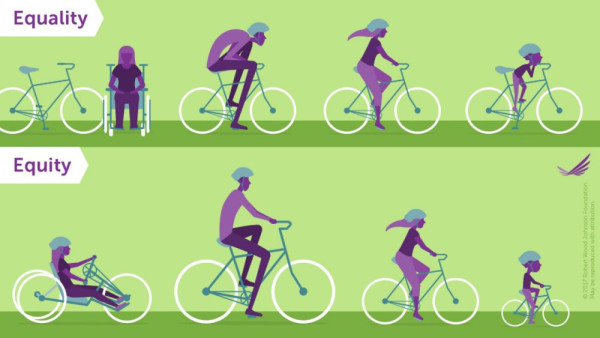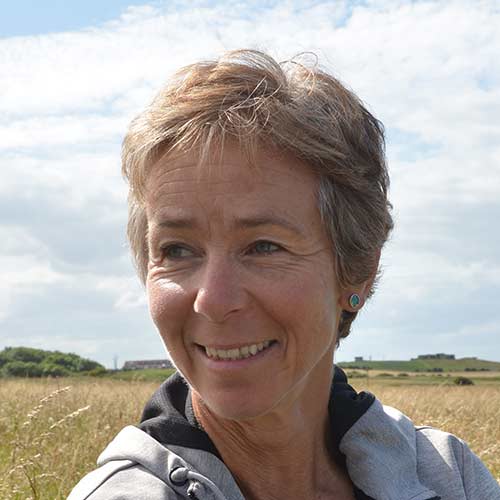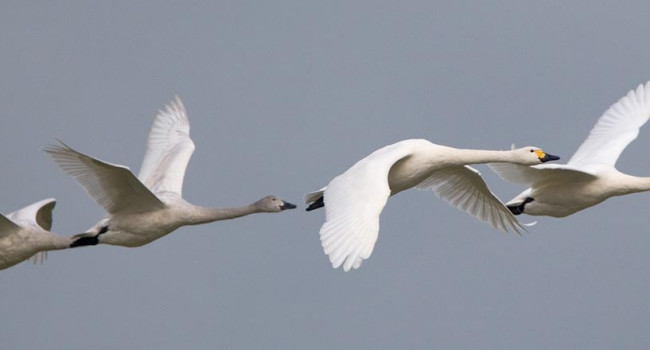
Equality vs equity: a crucial distinction in BTO’s work around diversity and inclusion
Juliet is responsible for leading the work of the Trust, under the governance and strategy of the Board.
Last year, on the date we published our Equality, Diversity and Inclusion Statement, I wrote a blog about BTO’s future with equality, diversity and inclusion (EDI).
I challenged everyone to learn more about the topic, and to reach June 2023 with a deeper understanding of the barriers and challenges faced by many people in the environmental sector. A year later, I’d like to announce a shift in our policy: from working towards Equality, Diversity and Inclusion, to working towards Equity, Diversity and Inclusion.
In March this year, I joined a panel discussion for International Women’s Day, which focused on Equity versus Equality. It was hosted by Dr Gemma Harper (CEO of JNCC), Dr Anjana Khatwa (Award winning Earth Scientist & TV Presenter), Dr Michaela Schratzberger (Cefas, Science Director – Environment) and Dr Jaswinder Kaur (Defra, Principal Scientist). This remarkable lineup of women shared personal journeys, experiences, reflections and advice with honesty and compassion.
It really got me thinking about just what an important shift is captured in what might appear to be a minor change in wording: the move from equality to equity.
The words equity and equality are often used interchangeably as both seek to promote fairness, but the distinction is a useful and important one to recognise as we aim to build a BTO workplace and community that enables everyone to belong and flourish.

To start, some definitions:
- Equality refers to treating everyone the same regardless of their individual differences, circumstances, or needs. It aims to create a level playing field by ensuring that everyone is subject to the same rules, standards, and opportunities.
- Equity acknowledges that different people have different needs and that treating them equally may not lead to fairness or justice. It aims to promote fairness by treating people differently according to their unique needs and circumstances.
Equity means that we give everyone what they need to be successful. It is not giving everyone exactly the same thing and expecting that will make people equal, because that assumes that everyone started in the same place – something that is obviously not the case.
Illustrations used to explain the difference include this phrase: “equality is giving everyone a shoe; equity is giving everyone a shoe that fits.” I am a keen cyclist and so the bike graphic pictured here beautifully illustrates the difference between equality and equity – but it does so whether you enjoy cycling or not!
Equity and BTO
Equal opportunities aren’t enough, and equal isn’t always fair...forging an equal and inclusive world requires us to better understand the difference between equity and equality.
For me, International Women’s Day was the wake-up call I needed to recognise that equal opportunities aren’t enough, and that equal isn’t always fair. I fully realised that forging an equal and inclusive world requires us to better understand the difference between equity and equality.
BTO has a long way to go on this journey, but we will start by replacing the phrase ‘Equality, Diversity and Inclusion’ with ‘Equity, Diversity and Inclusion’. We will continue to seek to dismantle barriers that many face to feeling that they belong in the natural world, in BTO and more widely. Where possible, we will continue to seek to remove these barriers altogether.

A simple illustration of this is the change we have made to the wording of our ornithology awards. The Marsh Award for Young Ornithologist was, in the past, awarded for “a significant contribution to BTO bird monitoring schemes”. Our brilliant Youth Advisory Panel pointed out that, in general, it is more likely that young men will be taking on survey work than young women, who are likely to contribute to BTO’s work in other ways.
The award is now given for “a significant contribution to BTO, either by contributing to BTO’s bird monitoring schemes, or by spreading awareness of BTO with their peers, or both”. This shift in wording is intended to remove the barrier to recognising the different but valuable contributions that people make.
Its importance was highlighted last year as Anna Webberley received the award in recognition of her work to relaunch Cardiff University’s Ornithology Society, making it a welcoming and diverse community, and encouraging members to collect valuable ornithological data through monitoring schemes such as those run by BTO.

A second example is our development of more diverse, suitable field equipment.
Large bird species like seabirds and wildfowl require bigger rings, and those which will be exposed regularly to salt water are made of a stiffer metal alloy. This in turn means that fitting the rings requires pliers with a wide grip, to generate enough force. Fine if you have large hands, but very hard to use with smaller hands that are more typical of women and young people.
Historically, this has made certain ringing projects, like seabird ringing, inaccessible or unnecessarily difficult for some people. Our ringing team have developed modified pliers to tackle this issue, and we will be testing a small number of them this year in a pilot.
These are small but important examples. Real change needs to be systemic and relate to a whole suite of processes and practices. Recognising the important difference between equality and equity is a start towards trying to ensure everyone feels they belong and are supported to be their best and reach their full potential.
You can keep up to date with our most recent work around EDI on our Equity, Diversity and Inclusion page.








Share this page